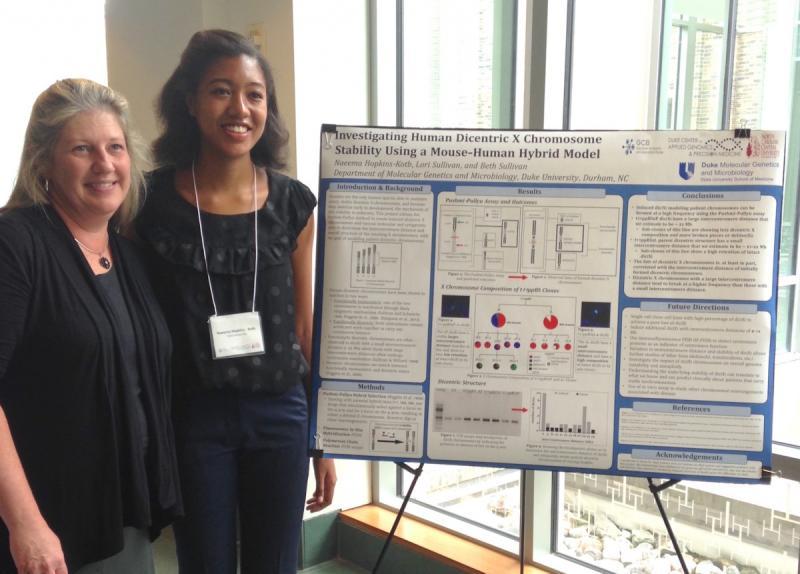
Thousands of professionals are using discoveries in genomics, genetics and medicine to revolutionize the world. Students interested in careers in genome sciences and medicine need a strong foundation of core genome sciences, technology and interdisciplinary training.
Sophomore Naeema Hopkins-Kotb started building her foundation in the 2018 Summer Scholars Program in Genome Sciences and Medicine, led by the Duke Center for Genomic and Computational Biology (GCB), Duke Center for Applied Genomics and Precision Medicine (CAGPM) and North Carolina Central University. Now, she is continuing the research she began in the Summer Scholars Program through an independent study with mentor Dr. Beth Sullivan, associate professor of molecular genetics and microbiology.
“I have always been interested in biomedical research,” Hopkins-Kotb said, “and I have a strong appreciation of its importance alongside my interest in medicine.” She participated in the Summer Scholars program so she could explore those interests firsthand and develop the skills she needs to be able to contribute to the research already being conducted at Duke. “Given my lack of previous research experience,” she said, “participating in the program over the summer allowed me to learn and practice new lab skills in a low-stress environment and at my own pace.”
Hopkins-Kotb is investigating dicentric X chromosomes – X chromosomes with two centromeres – which are implicated in Turner syndrome and reproductive abnormalities but can be stable in humans; however the mechanism for which this stability occurs is not well understood. For her independent study, she is building a library of engineered X chromosomes and a repository of information about their characteristics that can inform future related studies on the chromosome’s stability and its implication for disease.
Being able to participate in both the Summer Scholars program and continuing that research in this independent study has helped Hopkins-Kotb strengthen her academic and career path. As an aspiring physician, she will use this firsthand exposure in genetic research to learn how it can model clinical diseases.
“Research has a unique and powerful ability to concentrate some of the most valuable qualities conducive to learning – creativity, ingenuity, curiosity, cooperation, patience and resilience – around questions whose answers have a significant impact for people in a multitude of contexts,” Hopkins-Kotb said.
Learn more about the Summer Scholars Program and apply to become a 2019 Summer Scholar.